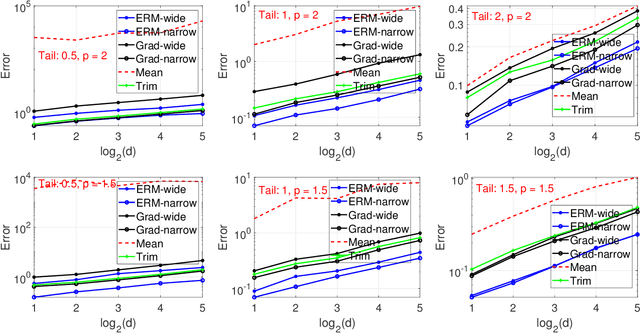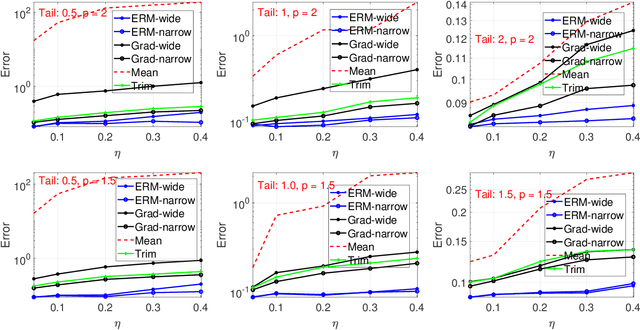Empirical Risk Minimization for Losses without Variance
Paper and Code
Sep 07, 2023



This paper considers an empirical risk minimization problem under heavy-tailed settings, where data does not have finite variance, but only has $p$-th moment with $p \in (1,2)$. Instead of using estimation procedure based on truncated observed data, we choose the optimizer by minimizing the risk value. Those risk values can be robustly estimated via using the remarkable Catoni's method (Catoni, 2012). Thanks to the structure of Catoni-type influence functions, we are able to establish excess risk upper bounds via using generalized generic chaining methods. Moreover, we take computational issues into consideration. We especially theoretically investigate two types of optimization methods, robust gradient descent algorithm and empirical risk-based methods. With an extensive numerical study, we find that the optimizer based on empirical risks via Catoni-style estimation indeed shows better performance than other baselines. It indicates that estimation directly based on truncated data may lead to unsatisfactory results.
 Add to Chrome
Add to Chrome Add to Firefox
Add to Firefox Add to Edge
Add to Edge